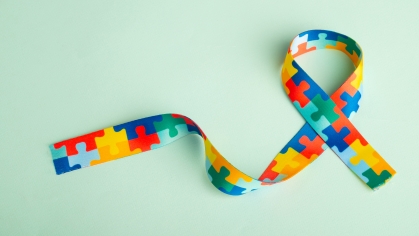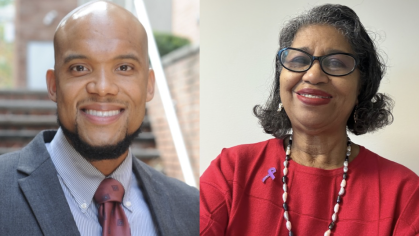Lauren Snedeker is an Assistant Professor of Teaching, Director of the Aging & Health MSW Certificate Program, and Core Member of the Hub for Aging Collaboration at Rutgers School of Social Work. Dr. Snedeker explains the significance of World Ageism Day, which is observed on October 9, and shares ways social workers and allied professionals can recognize this day.
Tell us a bit about your journey to social work.
My initial spark for social work ignited during my first year of college at Rutgers University when I was accepted into the alternative spring break program. This program selected about 10 undergraduate students to go to New Orleans and help individuals affected by Hurricane Katrina. There, I witnessed firsthand the profound impact that support and compassion can have on individuals facing challenges. This experience planted the seed for what would become my lifelong career aspiration.
I moved forward with my bachelor’s in public health and continued volunteering with different service groups that helped community members through tough times. After college, I accepted a coordinator position at Memorial Sloan Kettering Cancer Center. As fate would have it, I worked with an oncologist whose practice was focused on older women living with female cancers. In this role, I was responsible for managing the schedules of patients that were at various stages of a diagnosis during the middle and later stages of their lives. I realized through this experience, and thanks to these patients, I wanted to further my education by pursuing a master’s degree in social work. I wanted to dive deeper into areas like clinical practice, especially with older adults. Consistently in my graduate degree program I was the only student in my classes that worked with older adults. I committed my clinical social work practice to working with older adults and their families, an area that, then and now, receives less attention than it needs.
Entering the professional world, I began working at my practicum as a part time social worker. This was at a long-term care facility with many patients nearing the end of their lives. Each day brought new opportunities to connect with patients, advocate with them for their needs, and witness their resilience while also experiencing physical and emotional pain.
After years in practice with different agencies, I decided to take the next step in my career and pursue a doctor of social work degree (DSW) at Rutgers. I wanted to teach social work students about work with this group and all the rich opportunities that exist in this area of practice.
Reflecting on my journey, I am filled with gratitude for the experiences and lessons that have shaped my career. The path to becoming a social worker and now the Director of the Aging and Health MSW Certificate Program at Rutgers School of Social Work has been marked by both challenges and triumphs, but each step has reinforced my commitment to this vital area of practice. I am proud of the role I have at the school today and value the impact I hope I have on students’ perceptions about working with older adults as a social worker.
What is the significance of World Ageism Day for you?
World Ageism Day resonates with me in several ways. First, it provides an important opportunity to consider the impacts of ageism both personally, professionally, and beyond. Second, this day also serves as a call to action. It’s a chance to engage in advocacy, raise awareness, and contribute to efforts that reduce ageism. In my role, this includes educating different groups at Rutgers--students, faculty, and staff--on what age inclusive social work practice can look like.
How can the social work community recognize and commemorate World Ageism Day?
The social work community can recognize and commemorate World Ageism Day in a few ways. First, individuals can consider ways to further educate themselves on what ageism is and how it impacts individuals across the lifespan. Second, social workers can process and reflect on experiences of ageism that they and/or their loved ones may have had in their personal or professional lives to develop understanding and empathy for these living experiences. Thirdly, and not lastly, individuals can consider ways they can be more age inclusive in their practice and in their daily life. This can be through the language they use or behaviors they engage in so that we are continuously building a more age inclusive world on October 9th and beyond!
Additional resources - Ageism Awareness Day | American Society on Aging (asaging.org)
This story was created in partnership with Rutgers School of Social Work's Inclusion, Intersectionality, Diversity, Equity, and Advancement (IIDEA) Committee.



